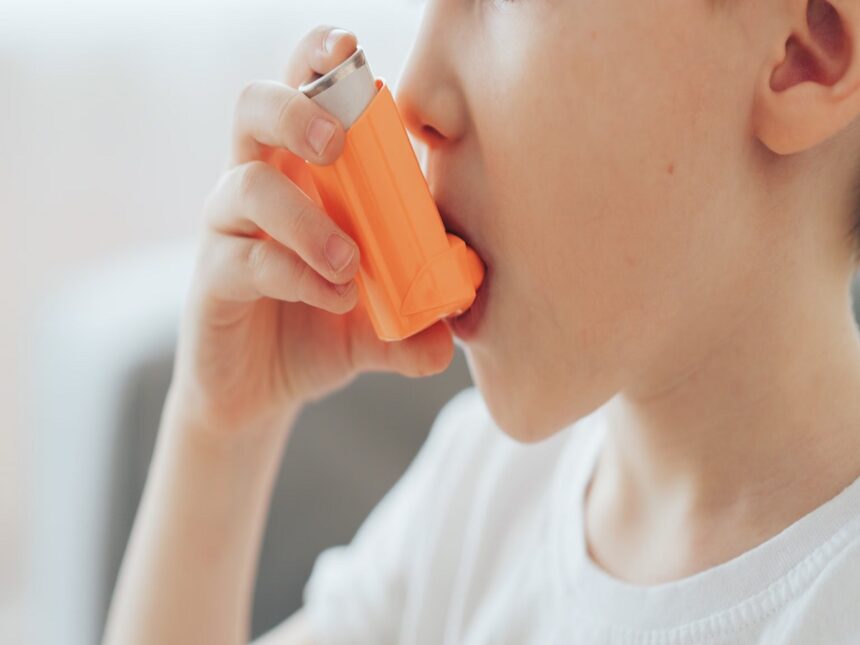Children with asthma may experience daily symptoms like coughing, wheezing, and shortness of breath, which can interfere with their ability to focus in class and participate in physical activities like recess or sports.
Uncontrolled asthma can lead to asthma attacks, making it difficult for students to concentrate or participate in physical activities. In some cases, asthma attacks can require immediate medical attention and may necessitate a visit to the emergency room or even hospitalization, further disrupting school attendance.
School absenteeism due to asthma can negatively affect academic achievement, as students miss out on school teachings and may fall behind in their studies. Friend relations, attendance at physical and social activities, and quality of life (QOL) of asthmatic children may be negatively affected.
In some cases, overprotective attitudes towards children with asthma, or even stigma surrounding the condition, can lead to them being excluded from activities and, subsequently, absenteeism.
Studies have shown that asthma-related absenteeism is more common among students from low-income families or those attending schools with high concentrations of low-income students.
Childhood asthma is estimated to affect between five and 10 percent of school-age children in Nigeria, with another three to five percent probably unrecognised or undiagnosed. The Global Initiative on Asthma (GINA) estimated that 14 percent of school-age children have had at least one previous episode of wheezing in the past 12 months.
Dr Bankole Kuti, a paediatrician at the Obafemi Awolowo University, Ile-Ife, in a review of challenges, risks and prospects in schooling and Nigerian children with asthma, indicated that children with asthma face lots of challenges in school which can affect their academic performance and quality of life.
“The challenges and risks the school-age asthmatics encounter in school include discrimination and victimisation, exposure to triggers on the road and in the school environment, poor and non-existent asthma care services in schools, suboptimal knowledge of teachers and caregivers about childhood asthma, hence poor asthma-related instructions and increased school absenteeism,” said the review published in the Nigerian Journal of Clinical Practice.
In Nigeria, schoolchildren walk to school on busy roads or on motorcycles and bicycles or overcrowded and poorly ventilated school buses, exposing them to particulate matter and noxious gases during their daily journeys to and fro between school and home, which can trigger asthma exacerbations and make symptom control very difficult.
Nevertheless, asthma shouldn’t be a reason for school absenteeism or the workplace or an excuse for redeployment from remote places by the National Youth Service Corps.
Head of the Pulmonary Unit at the University College Hospital, Dr Olumide Sogaolu, said there are effective inhaler medications for asthma.
He spoke at the 2025 World Asthma Day celebration by the Pulmonary Unit at University College Hospital in collaboration with the hospital’s Asthma Club, at the hospital.
According to him, “Asthma has no cure per se, but it can be well controlled throughout life. The key thing is education. Asthmatics must know their triggers and how to avoid them.”
He stated that asthma inhaler medications alongside avoidance of asthma triggers can ensure no asthmatic attack, given that inhalers ensure proper delivery of the asthma medicine into the lungs where it is really required and prompt support for the breathing mechanism in the lungs.
Dr Sogaolu stated that asthma can develop at any age but starts more often in early ages, causing many to experience asthmatic symptoms, including cough, chest tightness, wheezing and difficulty breathing that could be triggered by smoke, dust, industrial pollution, pollens, cockroaches, and weather changes.
Also, Dr Emmanuel Adesokan, a consultant pulmonologist at UCH, Ibadan, said asthma medications in tablet form are ineffective and can cause a lot of side effects because the drug first goes into the stomach, gets dissolved, gets in the bloodstream, and goes everywhere in the body to achieve what it is intended for in the lungs.
Deputy Director of Pharmaceutical Services at the UCH, Ibadan, Mrs Miriam Kayode-Edward, assured that generic brands of their asthma medication are safe and they shouldn’t insist on buying branded versions that may increase their chances of patronising fake and substandard asthma medicines.
She, however, urged all asthmatics to enroll in the National Health Insurance to ensure the scheme can take care of their hospital visits and medications, hence improving their asthma control.
Prescription asthma medications can help manage symptoms, but children may be hesitant to take their medication at school or may have difficulty self-administering it. However, Mrs Kayode-Edward said compliance with their medication is very important.
Also, Mrs Grace Adekoya, a deputy director of nursing, said asthma can pose serious social, physical, emotional and psychological problems and emotional challenges to children due to asthma-related physical limitations and physical exertion.
“There could be low self-esteem, school phobias, nightmares, and school bullying. Children with frequent asthma exacerbation in schools may be ostracised and excluded from school-related physical activities by peers, teachers and other school personnel in a culture of overprotection,” she added.
Studies indicate that regular follow-up, regular use of asthma medication and school conditions such as crowdedness, humidity of the class, and dander from animals in the classroom were important for effective asthma control.
Addressing asthma-related school absenteeism in Nigeria requires a multi-pronged approach, including better asthma management, improved knowledge among school personnel, and addressing potential social and cultural barriers.
READ ALSO: Asthma: The precautions
WATCH TOP VIDEOS FROM NIGERIAN TRIBUNE TV
- Let’s Talk About SELF-AWARENESS
- Is Your Confidence Mistaken for Pride? Let’s talk about it
- Is Etiquette About Perfection…Or Just Not Being Rude?
- Top Psychologist Reveal 3 Signs You’re Struggling With Imposter Syndrome
- Do You Pick Up Work-Related Calls at Midnight or Never? Let’s Talk About Boundaries






